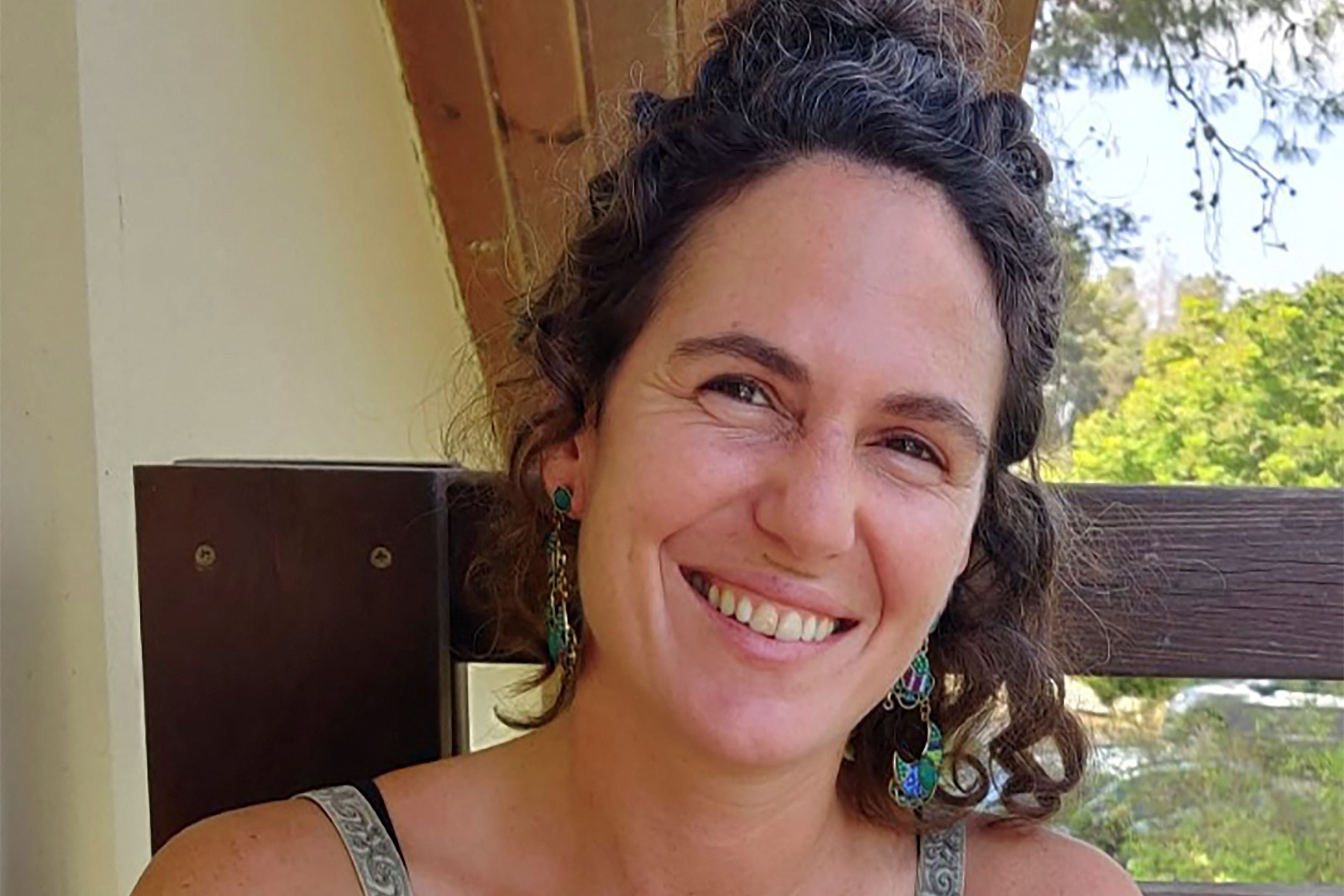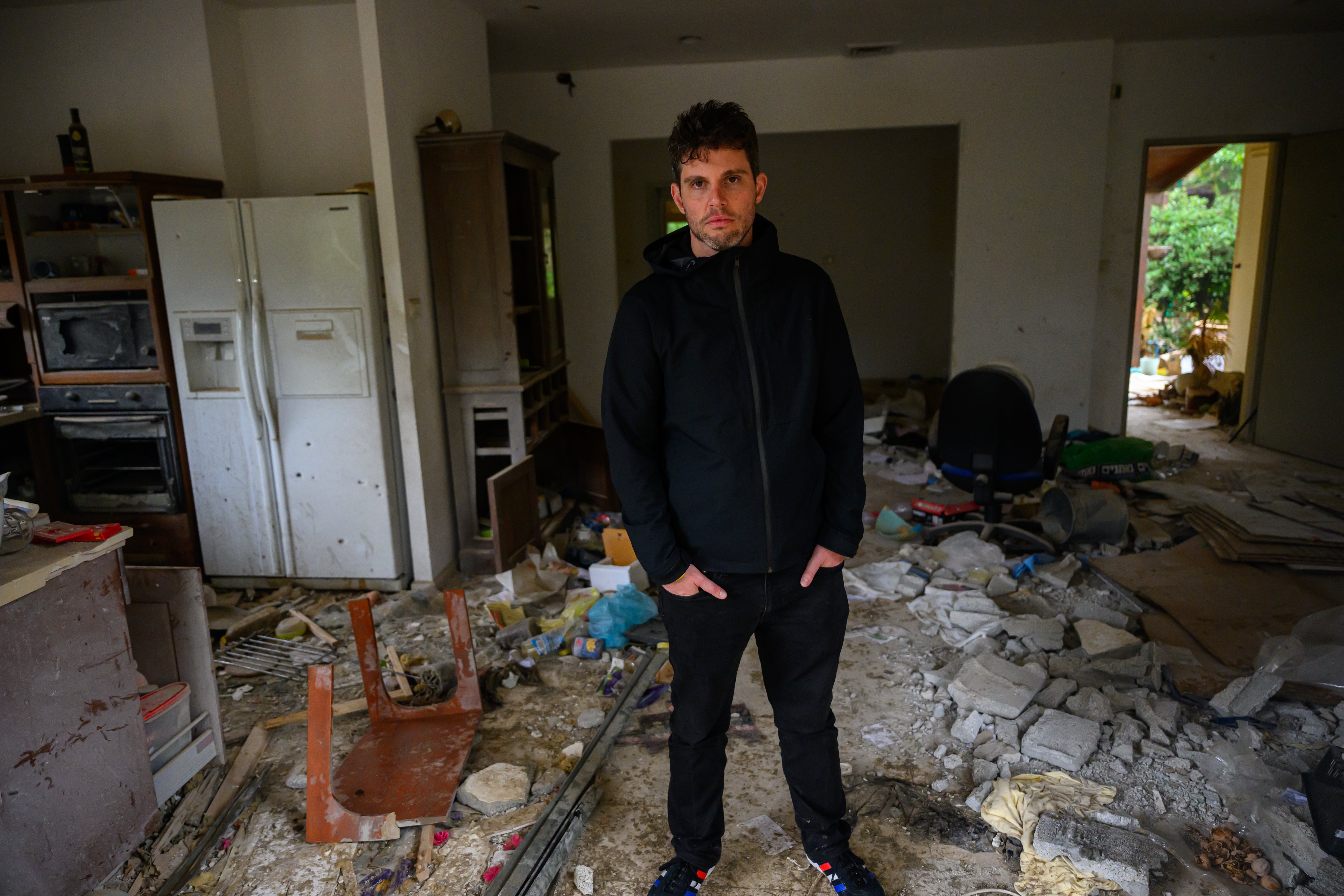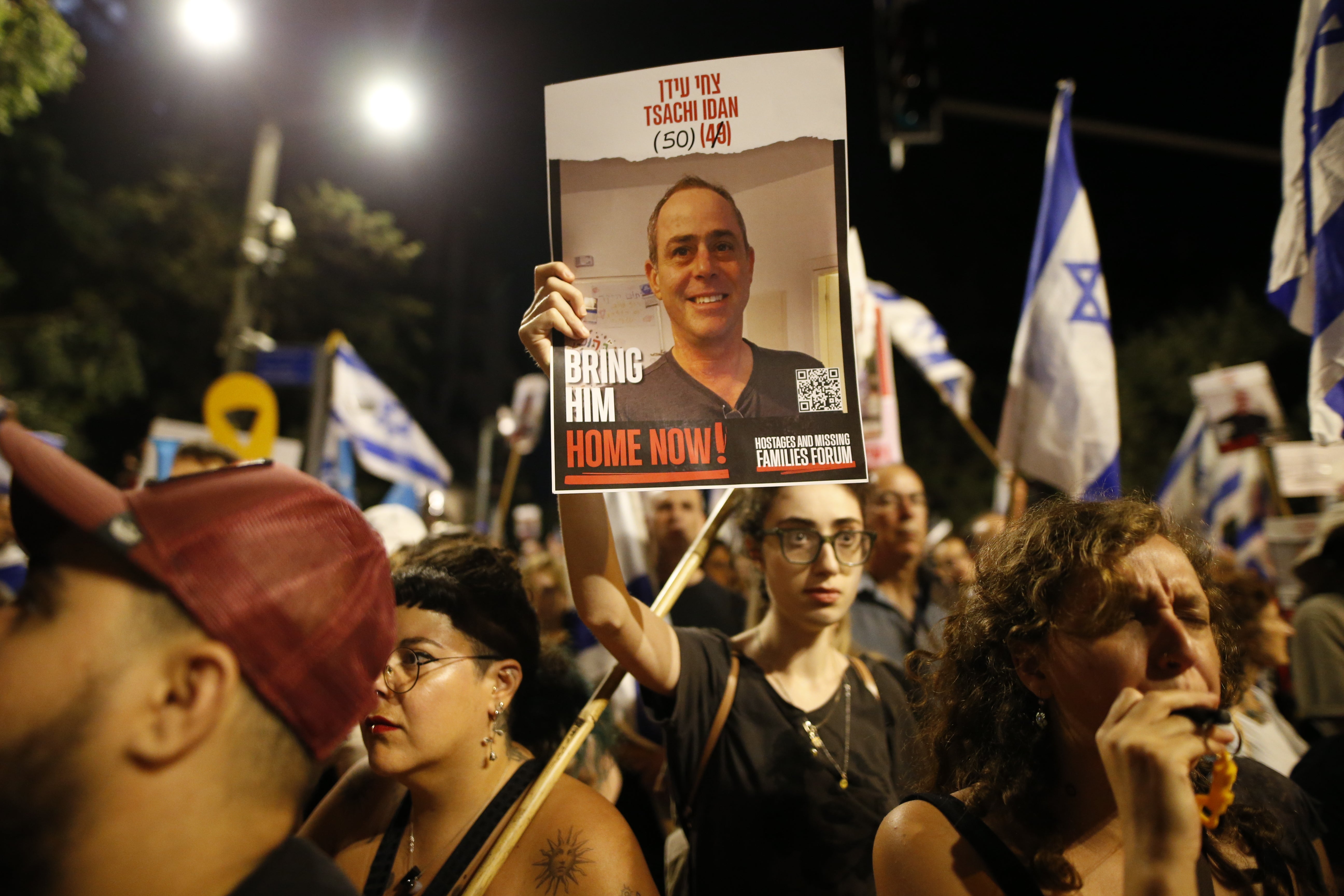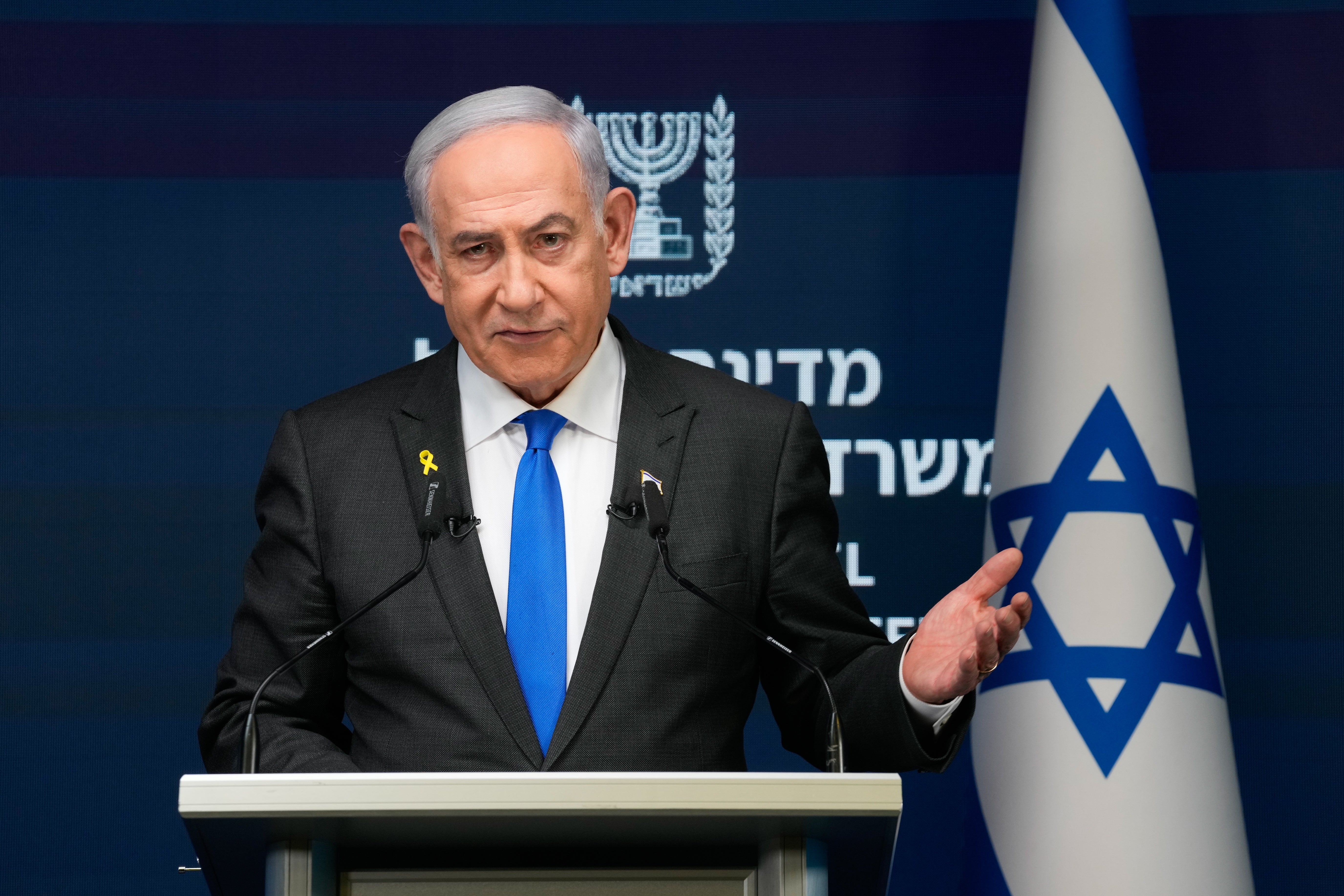Will mass protests in Israel be enough to alter Netanyahu's war on Hamas?
As Israel is gripped by angry protests following the killing of six hostages by Hamas, The Independent’s Bel Trew examines the potential impact on Benjamin Netanyahu’s stance on ceasefire negotiations


Carmel Gat was visiting her mother in Kibbutz Be’eri when she was abducted by Hamas militants on 7 October.
The 40-year-old from Tel Aviv was to be released a month later in the first ceasefire deal between Israel and Hamas - but the truce collapsed on the day she was to be set free.
The occupational therapist was again reportedly included on a list penned by Hamas militants in the latest draft of a new agreement, which the families of hostages, much of the Israeli public and the international community had hoped would be pushed through in the past few weeks.
Her family, increasingly desperate, still believed she was still alive after more than 10 months of brutal captivity just days ago.
They campaigned feverishly for the Israeli government to agree to a deal so she could finally return home safely.

In fact they think she was alive until just 48 hours before Israeli soldiers found and recovered her body, and five others, in a tunnel in south Gaza over the weekend.
The military said Carmel and five hostages including Israeli-American citizen Hersh Goldberg-Polin, 23, were shot dead by Hamas militants in the hours before they could get to them.
“It is devastating to know that we were so close yet we missed it. And by close, I don’t mean that the soldiers almost rescued them… but that we were so close to getting them out in a ceasefire deal,” said Carmel’s cousin Gil Dickman, as his voice cracked with tears.
“More than 20 Israeli hostages taken alive were murdered in captivity, all of them we could have saved, but weren’t able to.
“For me to see this can still happen after almost 11 months of war is something that saddens and frightens me, it brings me to tears.”

Dickmann had spoken to The Independent just a few weeks ago after the bodies of six previous hostages were also recovered from Gaza.
Then he had spoken of the latest draft agreement being the “last chance” to bring his cousin back alive.
He and other family members accuse Hamas but also the Israeli government - Benjamin Netanyahu specifically - of scuppering that deal by including conditions Hamas would not agree to including that Israeli soldiers remain in the so-called Philadelphi corridor - the border region between Egypt and Gaza.
Now Mr Dickman hopes that Carmel’s death will be the final straw. That something might change.
“I really hope that this is a turning point… that the Israeli public realise we can’t have this anymore, and that the Israeli government understands that we have to sign this deal immediately.
“It’s not too late for the other 101 hostages.. I think we have this momentum right now.”

Hundreds of thousands of Israelis have taken to the streets in massive protests over the last two days calling for a ceasefire deal.
Israel’s largest union called for a nationwide strike which temporarily disrupted or shut down sectors like banking, health care, and public transport, including Ben Gurion Airport.
As Amos Harel, an Israeli defence correspondent and expert, put it, for the first time in a long time there is a high level of emotion - a real “rage” - on the street.
“These six hostages were well known. Every second person in Israel knew who they were,” he told The Independent.
Hersh’s family had also led a high-profile campaign for the captives’ release, meeting with US President Joe Biden, Pope Francis, and addressing the Democratic National Convention last month.
Carmel Gat’s family protested inside the US Capitol and have addressed the Israeli parliament.

“A large amount of the public want a deal, they are willing to pay an enormous price,” he added.
But still, even a groundswell of support may not be enough. This might not be a turning point.
Monday evening - despite facing nationwide protests and strikes, despite condemnation from his closest ally Mr Biden who said he had not done enough for a ceasefire deal, despite leaks from Israeli media reporting criticism from within his own security ranks, despite being asked in a press conference “if he understood the magnitude of his mistake” Mr Netanyahu doubled down.
Looking and sounding stressed, he doggedly held his ground on conditions for the ceasefire like Israel retaining control of the so-called Philadelphi corridor.
“I will not surrender to this pressure… our nation will not surrender to this pressure. I say to [Hamas leader] Sinwar, forget about it, it is not going to happen”, he said, jabbing at the lectern.

International pressure must be focused on Hamas militants, not on Israel, for a deal, he concluded.
“Surrendering after they massacred us? Absolutely not,” he said.
For the families of the hostages, even those confirmed dead, they have vowed to keep the pressure up - to attempt to get through to Netanyahu, to try anything to get them home.
“There is nothing that we won’t try, because I can tell this is a horrible feeling to think that there was something that could have been done, that we haven’t done enough,” Mr Dickmann added.
“I don’t want any more families to feel this way. I want them and us to do whatever we can to save the lives of the [remaining] hostages, and maybe, some of the things we do will touch Netanyahu.”
Join our commenting forum
Join thought-provoking conversations, follow other Independent readers and see their replies
Comments
Bookmark popover
Removed from bookmarks